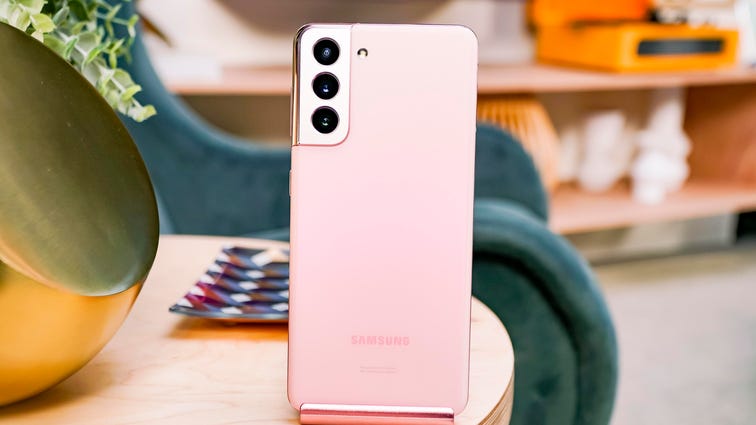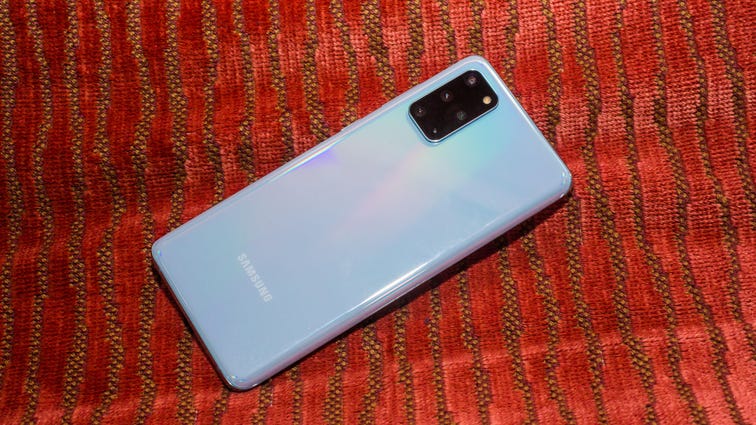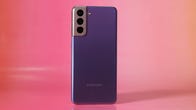Editor's note: This story mistakenly said that the Galaxy S21 line includes expandable storage of up to 1TB. However, the S21 phone line does not include a microSD card slot. We regret the error.
Samsung's Galaxy S21 phone line was announced at a virtual event in January. (Here's where to order one.) The latest version of Samsung's flagship Galaxy phone is the successor to the Galaxy S20 line, released in 2020. If you're in the market for an upgrade, you may be wondering: What exactly are the differences between the two Galaxy phones? Is it worth the $800 for an upgrade? (Or maybe you should go with a Galaxy S20 FE or one of the new Galaxy A series models?)
Here's everything you need to know for now about how the Galaxy S21 compares with the Galaxy S20. We chose a winner for each category below based purely on specs. For a more in-depth look at Samsung's new phones, read our full reviews of the Galaxy S21 and Galaxy S21 Ultra.
Read more: Galaxy S21: What did Samsung change since last year? Not a whole lot
The base Samsung Galaxy S21 includes a 6.2-inch Dynamic AMOLED 2X display with a 120Hz refresh rate, a 4,000-mAh battery and three rear camera lenses, including a 12-megapixel ultrawide lens. It runs on Android 11, and has a new Snapdragon 888 processor. The phone gets a major price drop compared with its predecessor, starting at $800 (£769, AU$1,249). Read our full Galaxy S21 review.
CNET gave the base Galaxy S20 a rating of 8.7 out of 10, naming it the best out of the S20 line. Our reviewer appreciated top-shelf features such as a sharp display and advanced camera capabilities, but noted that the starting price of $1,000 (£799, AU$1,349) was a bit high for what you get. While the S21 is mostly similar in features, unless S20's price drops more (you can get it refurbished for around $550), it seems worth it to upgrade to the S21. Read our full Galaxy S20 review.
Design, screen size and weight
The Galaxy S21 and Galaxy S20 are extremely similar when it comes to displays. Both feature 6.2-inch Dynamic AMOLED screens, a 120Hz refresh rate and an in-screen fingerprint sensor. The differences are relatively small: The S21 has a pixel density of 421ppi, compared with the S20's 563ppi. The S21 is also slightly heavier, at 6.03 ounces, while the S20 weighs 5.75 ounces.
The two phones also appear to be close to identical in design. The only major difference in appearance is the rear camera module -- on the S21, it has a metal overlay. Both phones are IP68-rated for water and dust resistance. Neither phone has a headphone jack.
In terms of colors, the Galaxy S21 comes in pastels called phantom violet, phantom gray, phantom pink and phantom white (other colors are available for the S21 Plus and Ultra models). The Galaxy S20 is available in cosmic gray, cloud blue, cloud pink and cosmic black.
Winner: Tie
Read more: Which Samsung Galaxy phone should you buy? We compare all of them
Cameras
The base model Galaxy S20 and Galaxy S21 have the exact same camera setup: The rear camera modules have a 64-megapixel telephoto camera, a 12-megapixel wide-angle camera and 12-megapixel ultrawide camera. Both phones also come with a 10-megapixel selfie camera. The cameras are the same on both Plus models, too.
The major camera upgrades come with the S21 Ultra. This model has four rear cameras: a main 108-megapixel wide sensor and a 12-megapixel ultrawide camera, plus two 10-megapixel telephoto lenses -- one with 3x zoom and one with 10x zoom. It also boasts a fast Bright Night sensor and pixel binning technology, which makes your photos more detailed.
Winner: Tie (except in the case of the S21 Ultra, which wins over the S20 Ultra)
Read more: Galaxy S21's camera features are good, but are they enough?
Processing speed
Two of the biggest upgrades to the S21 are the phone's processor and the software it runs -- it's now on Android 11 with a Snapdragon 888 processor, which should lead to increases in speed and performance. The S20 was originally released with Android 10 and has a Snapdragon 875.
Winner: Galaxy S21
Battery life
The base Galaxy S20 and S21 models have the same battery size of 4,000mAh. The battery size rises to 5,000mAh in both the S20 Ultra and S21 Ultra. The only difference between models is in the Plus versions: The S21 Plus gets a battery size increase to 4,800mAh, compared with 4,500mAh in the S20 Plus.
Winner: Tie (except in the case of the S21 Plus, which wins over the S20 Plus)
Read more: Samsung Galaxy S21: What to know about battery life and battery sizes
5G connectivity
All S21 and S20 models support 5G connectivity, so no difference there.
Winner: Tie
Stylus support
One of the bigger differences between the two phone models comes at the Ultra level. The Galaxy S21 Ultra includes support for the S Pen stylus (sold separately for $40), whereas none of the S20 models do. That means S21 Ultra owners will soon be able to use the small digital pen to jot notes, take better screenshots, sign documents or draw in their favorite apps.
Read more: Galaxy S21 Ultra works with Samsung S Pen, Pro stylus: Price, features and limitations
Price
Outside of the processor, perhaps the biggest difference between the base S20 and S21 is the price tag. The Galaxy S21 is now on sale, starting at $800 for the 128GB model. (Buy the S21 here.) By comparison, the Galaxy S20 started at $1,000. Though the price on the S20 has fluctuated since the Galaxy Unpacked event, Samsung didn't say whether it would get a further decrease, and thus far it doesn't seem to have done so. For international pricing see the chart below.
Winner: Galaxy S21
Galaxy S21 vs. Galaxy S20: Spec comparison
Here's how the specs of the two phones compare, now that the S21 details have been officially released.
For more about the Galaxy S21 and everything else Samsung announced, you can check out our roundup.
Samsung Galaxy S21 vs. Galaxy S20 specs
| Galaxy S21 | Galaxy S20 | |
|---|---|---|
| Display size, resolution | 6.2-inch Dynamic AMOLED 2X; (2,400x1,080 pixels) | 6.2-inch Dynamic AMOLED 2X; (3,200x1,440 pixels) |
| Pixel density | 421 ppi | 563 ppi |
| Dimensions (inches) | 2.80x5.97x0.31 in | 2.72x5.97x0.31 in |
| Dimensions (millimeters) | 71.2x151.7x7.9 mm | 69.1x151.7x7.9 mm |
| Weight (ounces, grams) | 6.03 oz; 171g | 5.75 oz; 163g |
| Mobile software | Android 11 | Android 10 |
| Camera | 64-megapixel (telephoto), 12-megapixel (wide-angle), 12-megapixel (ultrawide) | 12-megapixel (wide-angle), 64-megapixel (telephoto), 12-megapixel (ultrawide) |
| Front-facing camera | 10-megapixel | 10-megapixel |
| Video capture | 8K | 8K |
| Processor | Snapdragon 888 | Snapdragon 865 or 64-bit octa-core processor (Max 2.7GHz + 2.5GHz + 2GHz) |
| Storage | 128GB, 256GB | 128GB |
| RAM | 8GB | 12GB (5G), 8GB (LTE) |
| Battery | 4,000 mAh | 4,000 mAh |
| Fingerprint sensor | In-screen | In-screen |
| Headphone jack | No | No |
| Special features | IP68 rating for water and dust resistance, 5G-enabled, 30x Space Zoom, 10W wireless charging, 120Hz refresh rate | 5G enabled; 120Hz refresh rate; IP68 rating for water and dust resistance, |
| Price at launch (USD) | $800 | $1,000 |
| Price (GBP) | £769 | £799, £899 (5G) |
| Price (AUD) | AU$1,249 | AU$1,349 (4G), AU$1,499 (5G) |
May 09, 2021 at 02:30PM
https://ift.tt/3ewn4DX
Galaxy S21 vs. Galaxy S20: Samsung's 2021 and 2020 flagships compared - CNET
https://ift.tt/31VSHRH
Samsung





No comments:
Post a Comment